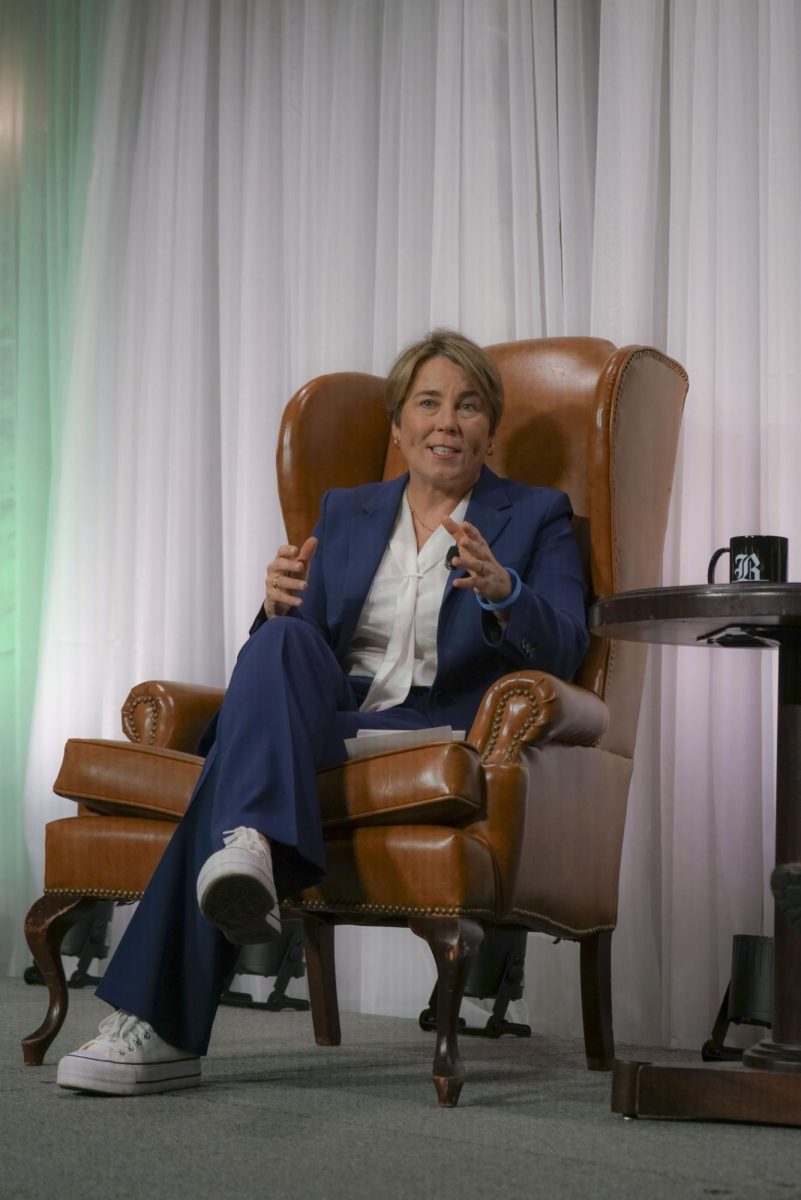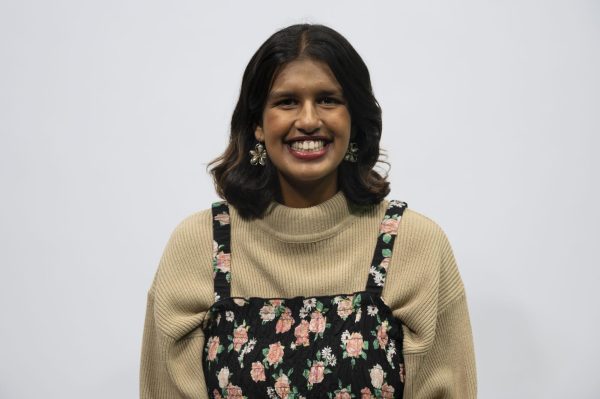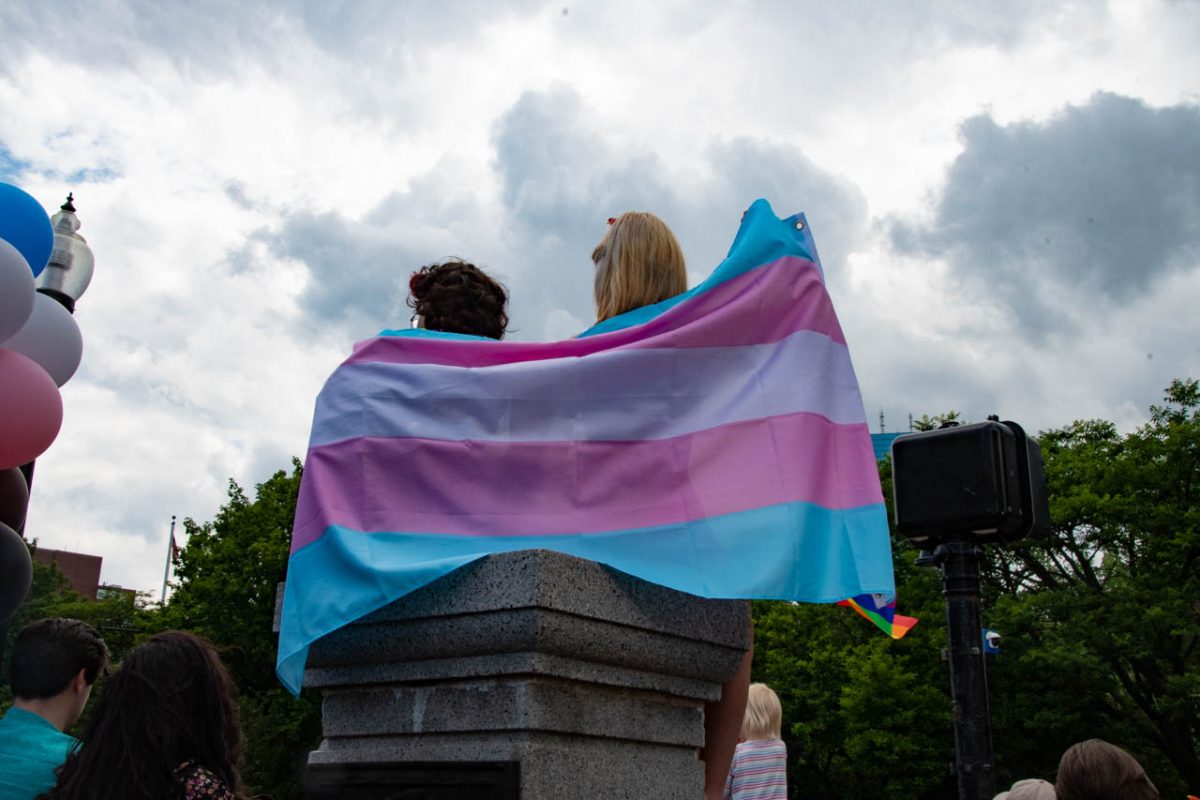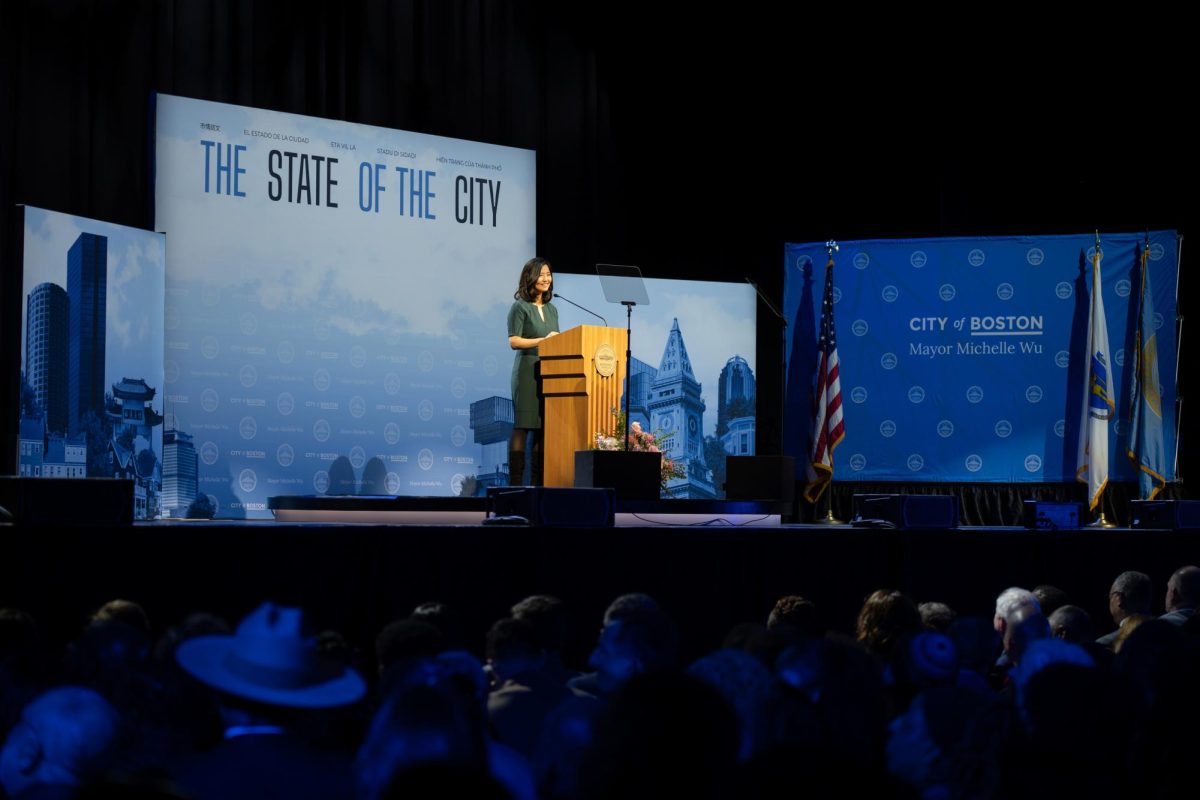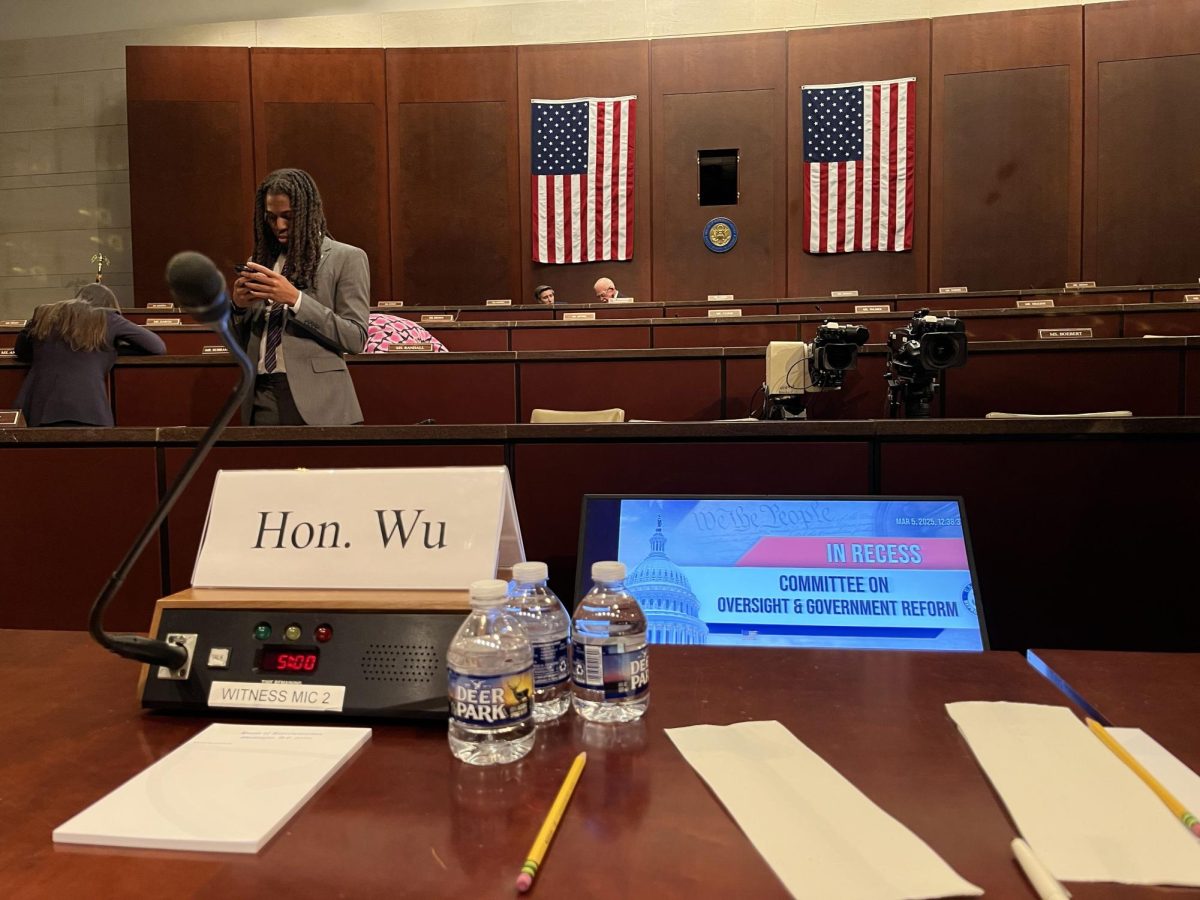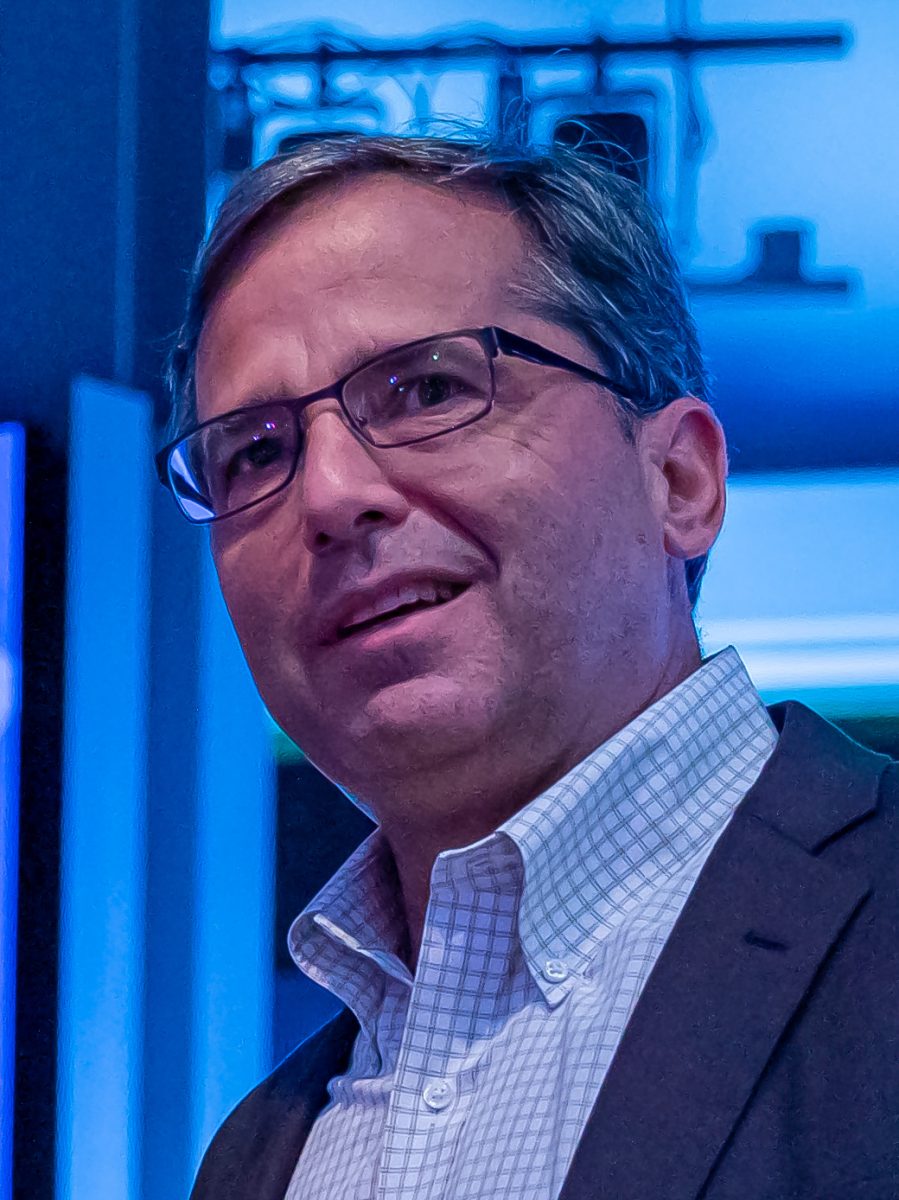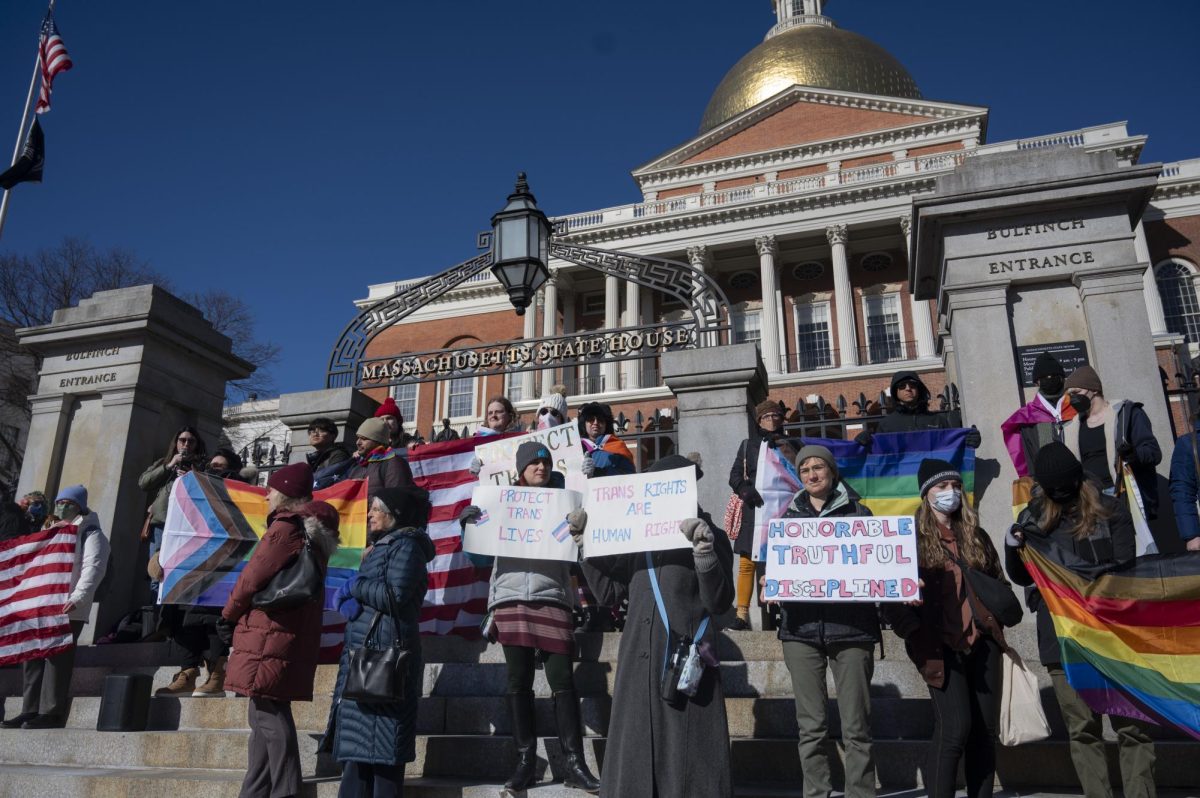Governor Maura Healey took the stage to discuss the commonwealth’s advances in sustainable energy practices Sept. 26. At The Harvard Club of Boston, politicians, journalists and industry moguls gathered for the 2024 Boston Globe Summit, an annual program which focused on “Boston’s Breakthroughs” Sept. 25 and 26. Globe climate reporter Sabrina Shankman sat down with Healey to discuss how Massachusetts is planning to engineer a workforce that both supports and is supported by sustainable energy.
Clean energy and climate preservation are core issues for Healey, who has put half a million dollars of state funding into programs at community colleges to encourage and help young people get involved within those fields. She helped establish Massachusetts as the leading state for offshore wind energy and is leading the U.S. Climate Alliance, an organization dedicated to growing the number of jobs in the industry. Currently, about 2.8% of jobs statewide are in the clean energy sector, and Massachusetts has the highest hourly wage for those in the industry.
Jim Hunt, executive vice president for corporate relations and sustainability for Eversource Energy, provided opening remarks ahead of the interview.
“Governor Healey is one of those folks that really gets it,” Hunt said.
Massachusetts would need 38,000 more jobs to reach carbon neutrality by 2050, something Healey views as both a challenge and an opportunity. “It’s a huge opportunity to make an impact on climate, and it’s a huge opportunity for economic development and more real growth in our labor workforce,” she said.
In June, Healey announced the Climate Careers Fund at the Vatican Climate Summit. The fund provides $3.4 million to three institutions with large minority populations: Benjamin Franklin Cummings Institute of Technology, Holyoke Community College and Roxbury Community College. Healey also advanced the Innovation Career Pathway in April in 36 high schools, 22 of which are new to the program. The pathway helps students gain work-based experience in a variety of fields, including clean energy. Healey sees this as major progress.
“I can show you and point to real examples of where that training [clean energy training] is happening. It’s important. It’s happening across the state. Is there more to do? Of course,” she said.
Massachusetts is a part of the U.S. Climate Alliance, a bipartisan coalition of governors dedicated to creating a net-zero future in the country.
“I’m really proud to have Massachusetts helping to lead the U.S. Climate Alliance. And the goal of this U.S. Climate Alliance is to work together as states. And one of the things we’re focused on is growing a million apprenticeships in short order by 2035,” Healey said. “So we can lead by example, and we can help scale this through the U.S. Climate Alliance. And I say that because seven out of ten jobs right now are clean energy jobs that are in demand.”
The News asked Healey about the impact of students on the climate conversation.
“It’s super important,” she said. She then emphasized the importance of student journalism in the climate conversation.
“Educating the public about both what’s possible out there, because there are so many naysayers out there when it comes to addressing climate change,” Healey said. “We know what we need to do, we know the kind of jobs and careers we need to grow and support. And also to tell the truth, because there are certain forces in the fossil fuel industry that will want to engage in the promulgating of all sorts of misinformation and disinformation to defeat the clean energy revolution we need.”
Julia Karam, a sales strategist, events and partnerships member on The Globe’s events team, also commented on the impact of students at these conferences.
“I always want to include students,” she said. “I care so much about access to education, that’s why we launched B-Side, which is a free daily newsletter for younger audiences.”
Not everyone is actively working within the climate change sector, but say they would still like to make a difference.
“You’ll have some sort of sustainability focus in your business,” Shankman said. “You’re going to have some sort of resiliency in your building, planning, anything. Don’t check out, stay engaged, and you can find a way to make a difference on the climate front while pursuing another career.”
While Massachusetts has come a long way in the clean energy industry, there continues to be a need to push further and work toward a more sustainable future.
“I view us in Massachusetts as competing, we all know where we need to go, what we need to go in terms of addressing climate,” Healey said to The News. “We know that the workforce is really key to this. And my view is, as we compete against other states, other countries, whoever figures out this workforce component first glance, just like all the companies I want to work here to grow climate tech.”
The Huntington News is dedicated to serving the Northeastern University community with original, professional reporting and creating an environment in which student journalists can learn from one another. Support an independent, free press at Northeastern University with your donation today.




